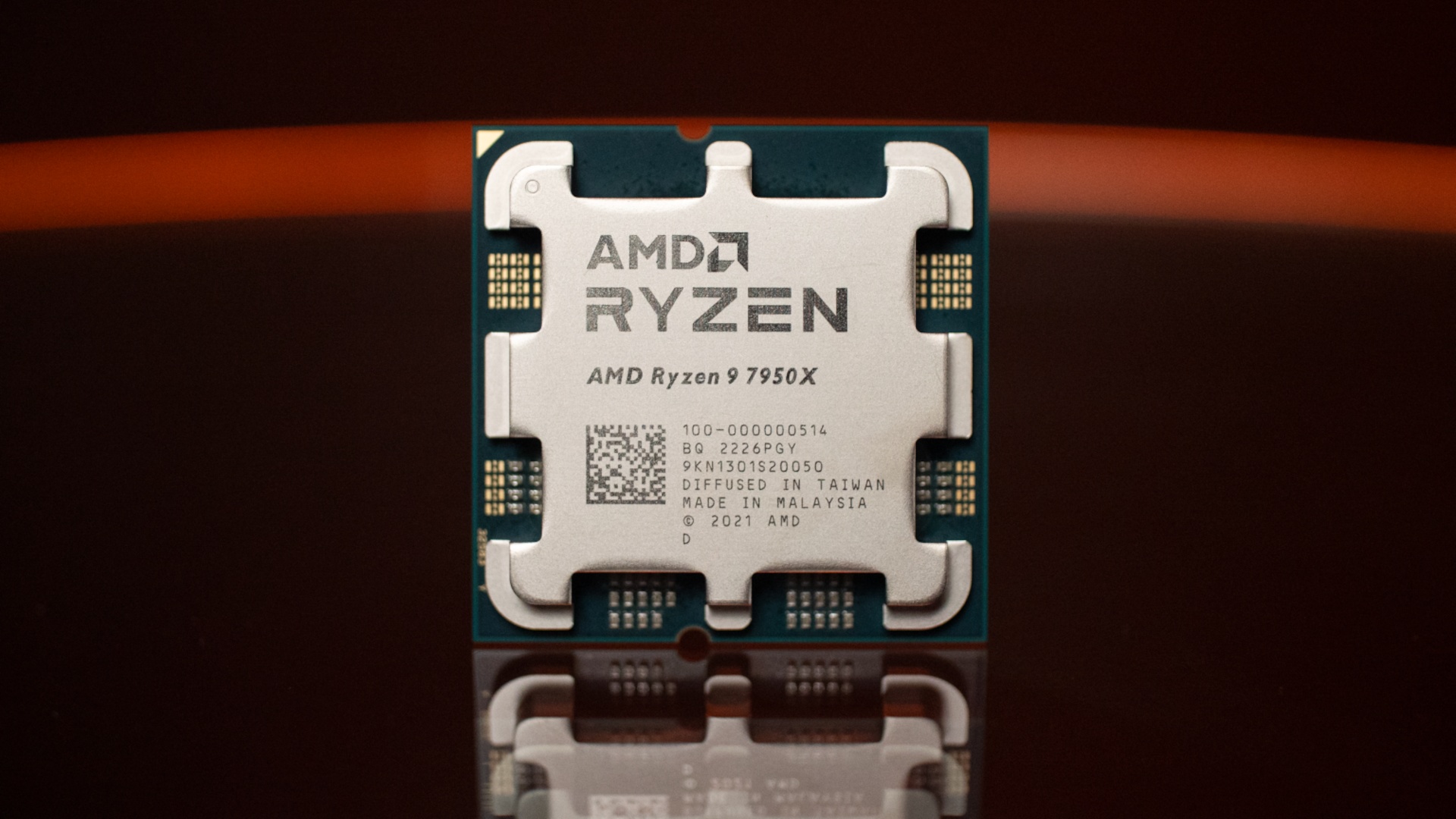AMD’s new Ryzen 7000 processors will be on the market in just a few weeks. We have all the information about it.
AMD has officially unveiled its latest Ryzen processors. Specifications and performance data promise an enormous leap in performance from Ryzen 7000 compared to Ryzen 5000. In terms of pure gaming performance, even the smallest Zen 4 model is said to be superior to Intel’s flagship. In addition, almost all new processors are cheaper than their direct predecessors when they are launched in a few weeks. But first things first:
Ryzen 7000 specs
AMD has not changed anything in terms of the number of cores compared to previous generations. The top model in the form of the Ryzen 9 7950X comes with 16 cores and 32 threads, followed by a twelve-, eight- and six-core core. The clock rate, on the other hand, goes up steeply. All models apparently easily break through the 5 gigahertz mark:
| model | Kerne/Threads | Base/Boost Clock Speed | cache (total) | TDP/PPT |
|---|---|---|---|---|
| Ryzen 9 7950X | 16/32 | 4,5/5,7 GHz | 80 MB | 170W/230W |
| Ryzen 9 7900X | 12/24 | 4,7/5,6 GHz | 76 MB | 170W/230W |
| Ryzen 7 7700X | 8/16 | 4,5/5,4 GHz | 40 MB | 105W/142W |
| Ryzen 5 7600X | 6/12 | 4,7/5,3 GHz | 32 MB | 105W/142W |
However, AMD also adjusts the power consumption: The two top models can use up to 230 watts (PPT, Package Power Target). The TDP is 170 watts. So far, 105 watts (TDP) and 142 watts (PPT) were the upper limit. Meanwhile, Intel is apparently also (and again) tweaking the clock screw:
crowbar
New Intel benchmarks show a clear increase in performance
Some links included on this page are affiliate links. Depending on the provider, GameStar receives a small commission for purchases made via these links without affecting the price.
More info.
Ryzen 7000: Performance
On the plus side there is an enormous performance plus: In terms of average gaming performance, even the smallest new Ryzen 5 7600X model should keep Intel’s current flagship Core i9 12900K in check – in Full HD resolution, mind you:
According to AMD, the Ryzen 5 7600X is said to be superior to the Intel Core i9 12900K in games.
The Ryzen 9 7950X is clearly superior to its direct predecessor Ryzen 9 5950X in all respects. Whether you should therefore upgrade directly is another matter – more on that in the section below Does an upgrade make sense?
How is this made possible? In addition to higher clock rates and power consumption, improvements in the architecture and a new manufacturing process are primarily responsible for the increased performance. The latter is evidenced by the following chart, where clock speed and core count have been capped (to 4.0 GHz and eight cores):
The increased performance per clock cycle is normalized to 4.0 GHz and eight cores.
Ryzen 7000 release and price
All new models will be launched on September 27th. With the exception of the Ryzen 5 7600X, all CPUs are cheaper than their direct predecessors at launch. The $700 Ryzen 9 7950X is $100 less at launch than the Ryzen 9 5950X ($800):
- 7950X vs. 5950X: 699 USD vs. 799 USD
- 7900X vs. 5900X: 499 USD vs. 549 USD
- 7700X vs. 5800X: 399 USD vs. 449 USD
- 7600X vs. 5600X: 299 USD vs. 299 USD
What needs to be considered? With Ryzen 7000, AMD is using a new socket for the first time since the Ryzen processors were introduced in 2017. That means: A new mainboard is mandatory for Ryzen 9 7950X and Co. Since Ryzen 7000 is also designed for DDR5 memory, you can’t avoid new RAM modules.
All slides from AMD’s presentation in the image gallery
Ryzen 7000 revealed – watch the presentation
Does an upgrade make sense?
Experience has shown that lower resolution levels benefit from fast processors, since in many cases it is not the graphics card but the processor that is the limiting factor. The higher the resolution, the smaller the performance gains, since the GPU tends to become more and more of a bottleneck. This is also proven by our review of the Ryzen 5 1600.
So an upgrade makes more sense if your CPU is already quite old or if you also perform other particularly computationally intensive tasks in addition to playing games, such as editing videos. Owners of a fairly current model who primarily play with their PC, on the other hand, have little reason to switch.
This is especially true if you’re playing in high resolutions like WQHD or 4K, which is becoming more and more common according to our recent survey. You can find out more about this in the following article:
Monitor resolutions: After falling from first place, Full HD soon loses second place
What do you think of the new Ryzen processors? Are you perhaps already planning with it, or do you want to wait and see how Intel counters? Write it to us in the comments!
Table of Contents












